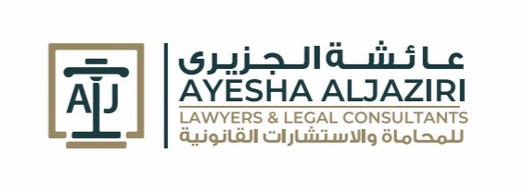Ayesha Aljaziri Lawyers & Legal Consultants is a premier full-service law firm in Dubai, United Arab Emirates. As experienced lawyers in Dubai with full rights of audience before all UAE courts (civil, Sharia, commercial, and appellate), we deliver trusted legal solutions to individuals, clinics, and hospitals across the UAE. Our multilingual team advises on healthcare regulation, licensing, and disputes within our dedicated Healthcare & Life Sciences practice—providing clear, practical guidance on patient rights and medical liability obligations.
This guide explains the essentials of UAE medical liability, focusing on patient rights, provider duties, and the complaint and redress process. It is designed to help patients understand their protections and help healthcare professionals align with UAE regulations in a rapidly evolving care environment.
Key Takeaways:
- Patients in the UAE have core rights—clear information, informed consent, privacy, and access to appropriate care.
- Healthcare providers must meet the accepted standard of care, communicate risks and alternatives, and maintain accurate records.
- UAE medical liability rules offer complaint pathways and routes to compensation where malpractice or negligence is established.
Understanding Patient Rights in the UAE

Patient rights underpin safe and respectful care. In the UAE, these rights are supported by federal legislation and health authority regulations that require transparent communication, confidentiality, and dignity throughout the treatment journey.
1. Right to Informed Consent
Before treatment or procedures, patients must receive understandable information about diagnosis, proposed interventions, alternatives, material risks, and expected outcomes. Informed consent is not merely a signed form—it is a documented discussion that confirms patient understanding and voluntary agreement.
Best practices for providers include:
- Explaining the steps of the procedure in plain language and confirming understanding.
- Outlining material risks, likely benefits, and reasonable alternatives (including no treatment).
- Documenting questions asked, answers provided, and the patient’s decision.
A practical consent checklist should cover identity verification, scope of consent, potential outcomes, and timing—ensuring the form is signed before the procedure and stored in the medical record.
2. Right to Privacy and Confidentiality
Patient data must be safeguarded. UAE health data rules require providers to implement robust administrative, technical, and physical controls to prevent unauthorized access or disclosure. Breaches can trigger regulatory investigation and significant penalties. Regular staff training, access controls, and audited policies are essential to reduce risk and maintain trust.
Healthcare Provider Obligations
Healthcare professionals in Dubai and across the UAE are expected to practice with skill and diligence consistent with the standards of their specialty. Clear communication, careful documentation, and adherence to clinical guidelines are central to meeting these obligations.
1. Standard of Care
The standard of care is the level of skill, knowledge, and attention a reasonably competent practitioner in the same field would exercise under similar circumstances. Allegations of negligence typically arise from diagnosis or treatment errors, failure to obtain informed consent, or lapses in post-operative care. Continuous training, peer review, and protocol adherence help providers maintain this standard and minimize risk.
2. Duty to Inform
Providers must communicate material risks, alternatives, and likely outcomes in terms patients can understand. Effective methods include:
- Using clear, non-technical language and checking comprehension.
- Providing visual aids or written summaries that outline options and risks.
- Encouraging questions and allowing reasonable time for decisions.
Thorough documentation of these discussions supports continuity of care and evidences compliance with legal and ethical standards.
Legal Framework for Medical Liability in the UAE
UAE medical liability is primarily governed by federal legislation that defines professional responsibilities, outlines complaint procedures, and provides mechanisms for expert review. These rules clarify when a provider may be held liable for harm resulting from a deviation from accepted standards, and they empower patients to seek appropriate remedies.
Key Rules and Regulatory Touchpoints
- Medical Liability Legislation: Establishes duties of care, consent requirements, and the role of expert committees in assessing alleged errors.
- Health Data and Privacy Requirements: Mandate confidentiality and secure handling of patient information.
- Health Authority Regulations: Local authorities set licensing and facility standards and administer complaint channels.
Together, these provisions ensure that clinical practice aligns with recognized standards and that potential incidents are investigated through structured, expert-led processes.
Common Types of Medical Malpractice
Understanding frequent risk areas helps both patients and providers identify issues early and address them proactively.
1. Negligence Cases
Negligence claims often involve diagnostic errors, medication mistakes, surgical complications, or inadequate follow-up. To establish negligence, a claimant typically must demonstrate: (1) a duty of care, (2) a breach of that duty, (3) causation linking the breach to harm, and (4) resulting damages. Meticulous note-taking, adherence to clinical pathways, and timely escalation of complications reduce exposure.
2. Informed Consent Violations
Claims may arise where material risks or alternatives were not communicated or where consent was not properly documented. Consistent use of standardized consent forms, patient-friendly explanations, and confirmation-of-understanding checks (e.g., teach-back) materially lower these risks and strengthen patient trust.
Patient Recourse and Remedies
Patients who believe they were harmed by substandard care have clear avenues to raise concerns and seek redress in the UAE.
1. Filing Complaints
The process generally involves compiling medical records, a detailed account of events, and supporting documents, then submitting a complaint to the relevant health authority. Depending on the emirate and facility, matters may be referred to expert committees for review. Patients should retain copies of all communications and note timelines. Where appropriate, mediation or alternative dispute resolution can help achieve swift, cost-effective outcomes—supported by our arbitration and mediation lawyers in Dubai.
2. Compensation Mechanisms
Depending on the findings, patients may pursue compensation via insurance channels or civil claims. Well-prepared claims rely on expert reports, medical records, and clear evidence of loss. Our litigation lawyers in Dubai represent clients end-to-end—drafting pleadings, coordinating expert assessments, and advocating in court with full rights of audience. We also advise healthcare providers on risk management and regulatory compliance to prevent disputes before they arise.
Why Work with Our Dubai Law Firm
As a leading law firm in Dubai, we combine sector depth with courtroom strength. Our UAE court representation capability means there is no need for external counsel, enabling fast turnaround times and consistent strategy. Our multilingual lawyers (Arabic and English, among others) offer culturally attuned advice to patients, physicians, clinics, and hospitals—spanning regulatory compliance, licensing, and dispute resolution within the Healthcare & Life Sciences sector and adjacent areas such as UAE labour and employment where staffing, credentialing, or disciplinary issues may intersect with clinical risk.
Frequently Asked Questions
1. What are the key patient rights in the UAE?
Patients are entitled to clear information about diagnosis and treatment options, to give or refuse consent, to privacy and confidentiality, and to receive timely, appropriate care.
2. What responsibilities do healthcare providers have?
Providers must deliver care that meets recognized standards, obtain informed consent, protect patient data, and maintain accurate records—communicating risks and alternatives in an understandable way.
3. How can patients enforce their rights?
Patients may file complaints with the relevant health authority, seek expert review, and pursue mediation, arbitration, or litigation where appropriate. Thorough documentation strengthens any claim.
4. What types of malpractice are commonly addressed?
Misdiagnosis, surgical errors, medication errors, inadequate post-operative care, and failures in informed consent are typical areas of concern under UAE medical liability rules.
5. Are there time limits for bringing claims?
Time limits apply and can vary by matter type. Early legal advice helps preserve rights and evidence. Contact our team promptly to assess deadlines and next steps.
Speak to Experienced Lawyers in Dubai
Whether you are a patient seeking clarity or a healthcare provider looking to strengthen compliance, our firm offers comprehensive legal services and practical, sector-specific guidance. Arrange a confidential consultation with Ayesha Aljaziri Lawyers & Legal Consultants in Dubai today.








